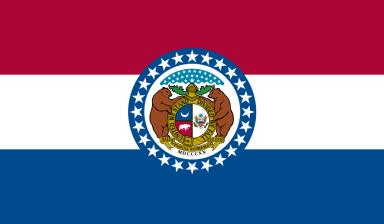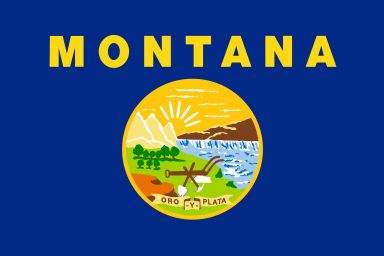South Dakota Employment and Labor

South Dakota is experiencing dynamic growth. With a sparse population of over 850,000, the influx of new jobs in the manufacturing, finance, and retail sectors is giving enormous opportunities to residents and transforming the state’s employment landscape.
However, as employment rates rise, there is a corresponding increase in employment-related legal disputes. According to the 2021 U.S. Equal Employment Opportunity Commission statistics, there were 34 recorded complaints of work discrimination based on disability, 16 for age, 16 for race, and five for national origin. These cases provide a view of the legal concerns workers and businesses face in the state.
But first things first, know that employment law is entirely different from labor law. Employment law deals with employer-employee relationships, while labor law governs the various issues that arise when an employee seeks or chooses a labor union to represent them when dealing with employers.
This article covers the essential elements of South Dakota employment and labor laws. It also discusses what constitutes wrongful termination, how to report such practice, the deadlines for filing complaints, and the potential penalties for employers found guilty of violating employment laws. Whether you are a business owner seeking to comply with state laws or an employee wanting to know and understand your rights, this article serves as an informative and reliable source of information.
South Dakota Minimum Wage Law
The minimum wage in South Dakota is currently $10.80 for non-tipped employees and $5.50 for tipped employees. The Mount Rushmore State started modifying its minimum wage every year on January 1, 2016. The rate is rounded to the nearest five cents and is based on the cost of living. The wage no longer decreases, even if the cost of living does. The annual adjustment considers the percentage increase in the Consumer Price Index from August to August each year, as reported by the U.S. Department of Labor. The South Dakota Department of Labor and Regulation must announce the adjusted rate by the 15th of October for it to take effect on the first day of January.
Employers of tipped workers must pay at least half of the standard minimum wage. If this amount plus the tip does not equate to the full minimum wage, employers must cover the difference every pay cycle. This law applies only to workers who receive tips of more than $35 per month. It does not apply to babysitters and outside salespeople. Exemptions also apply to organized camps and nonprofit centers if they operate less than seven months a year, provided their sixth-month revenue average does not exceed 33.33% of the other six months.
South Dakota Workers’ Compensation Law
Workers’ compensation is insurance that provides benefits to employees injured on the job. These benefits include medical treatment, disability payments, and lost wage replacement. While employers in South Dakota are not required to obtain workers’ compensation insurance, it is in their best interest to have it. The coverage provides employers with a degree of immunity from being sued in civil court.
Certain requirements must be met to qualify for compensation:
The injury must be directly related to employment.
The injury must occur while the worker is carrying out job-related tasks.
The employee has reported the injury to the concerned parties.
A clear medical connection exists between the injury and the employee’s health condition.
Workers whose claims are denied must act promptly to file an appeal. They must challenge the decision within two years of receiving the notification. They also have three years from the date of the last payment to file a claim if they have already received benefits in the past. The three-year period may be waived if there is a noticeable improvement in the employee’s health condition related to the injury.
Child Labor in South Dakota
South Dakota employment and labor laws protect minors from workplace exploitation and prioritize education over labor demands. Restrictions on child labor change depending on the child’s age and include limitations regarding the nature of jobs, night shift work, and maximum working hours. Unlike other states, South Dakota does not require minors to obtain employment certificates, often known as work permits, or provide certification as proof of age. It is the duty of employers to verify the age of their juvenile workers and ensure that their operations comply with applicable state and federal child labor laws.
The Mount Rushmore State enforces specific hour limitations for its younger workforce. When school is out, the state allows individuals under 16 to work eight hours a day or 40 hours a week. This is cut down to four hours a day or 20 hours a week when school is in session. Minors are prohibited from working past 10 p.m. before a school day. For minors aged 16 and 17, no night work restrictions are in place. However, there are special rules for minors working in the agriculture and entertainment industry.
South Dakota Labor Union Laws
Employees in South Dakota have the right to form and join labor organizations and bargain collectively through chosen representatives. They can legally engage in activities to gain mutual benefits and protections. They can also choose not to participate in such activities.
To ensure these rights are respected, labor union laws in South Dakota recognize and outline specific behaviors that constitute unfair labor practices. These include:
Intimidating or hindering employees from exercising their legal rights.
Controlling, interfering with, or supporting any labor union, though they can allow employees to discuss issues during work hours without deducting pay or time.
Showing bias in hiring or tenure of employment to control membership in any labor union.
Terminating or mistreating an employee for filing a complaint, providing information, or giving testimony.
Refraining from engaging in sincere discussions with an official representative.
Neglecting or refusing to adhere to collective bargaining laws.
Family Medical Leave Act in South Dakota
Under the Family and Medical Leave Act, employers in the state must offer up to 12 weeks of protected leave to qualified employees for specific family or medical issues. In cases involving a family caregiver of a wounded or sick service member, this can extend to 26 weeks within a year. Requirements for eligibility include working for a covered employer for at least a year and clocking 1,250 hours in the past 12 months. The employer should also have a minimum of 50 employees within a 75-mile radius.
Reasons for granting unpaid leave include:
Birth or adoption of a child.
Caring for a spouse, child, or parent with a significant health issue.
Severe health conditions hindering job performance.
Exigencies related to a family member’s active military duty.
Tending to a spouse, child, parent, or closest relative injured in military service.
When taking time off under the FMLA, state employees in South Dakota must use their available paid leaves before the unpaid leaves. Salaried employees who qualify for the FMLA can have their leave deducted in less than one-day increments from their paid leave balance. If there are no paid leaves left, all hours not worked will count as unpaid time off.
South Dakota Overtime Laws
In South Dakota, employees paid by the hour receive overtime pay when they work more than 40 hours a week. This additional compensation is equivalent to one and a half times the state’s regular minimum wage. As such, the overtime minimum wage in South Dakota is $16.20 per hour. Unlike other states, South Dakota sets no limit on daily overtime. Additionally, the state has no specific overtime statutes and follows the guidelines outlined in the federal Fair Labor Standards Act.
Is South Dakota an At-Will Employment State?
South Dakota employment and labor laws support the employment-at-will doctrine. This means employers can terminate an employee without justification, just as employees can quit without giving a specific reason. There are exceptions to this rule, though. These include cases where an employment contract exists, if an employer fires an employee for refusing to commit an illegal act, or if the employee is terminated for exercising a legal right, such as filing a workers’ compensation claim.
In situations where a specific employment term is agreed upon, an employer may choose to terminate the contract early if the employee habitually neglects their responsibilities, is consistently unable to perform, or willfully violates the provisions of the employment contract.
What Qualifies as Wrongful Termination in South Dakota?
According to federal laws and South Dakota statutes, employers are prohibited from dismissing employees based on color, race, gender, religious belief, national origin, ancestry, or disability. They are barred from terminating an employee due to their commitment as a juror in any state court. For tobacco users, state law bars an employer from firing an employee for using tobacco products when they are off-duty and away from the workplace.
As with most laws, there are exceptions. If being a non-smoker is required due to the nature of the job or if refraining from smoking avoids a conflict of interest with a worker’s responsibilities to their employers, exceptions can be made. One example is the requirement for full-time firefighters to follow non-smoking rules.
Whether an employee chooses to leave their job or is terminated, they must receive by the next regular payday all the wages and compensation due to them. This applies only if the employee immediately returns any employer property they are responsible for.
How Do You Report an Employer in South Dakota for Wrongful Termination?
The South Dakota District Court is committed to providing employees with an environment free from any form of unfair labor practices. An employment dispute resolution plan, which offers methods for reporting and resolving claims of employer misconduct, including wrongful termination, was approved by the court on February 19, 2020. The model plan that the Judicial Conference of the United States released on September 17, 2019, was the foundation of the District of South Dakota plan.
Employees are encouraged to immediately report incidents of wrongful termination and any reliable evidence of such action. If you believe you have been unlawfully terminated, there are several avenues in South Dakota you can turn to for help. You can bring the matter to a supervisor, unit executive, or human resources specialist. Other means of reporting include speaking to the Chief Judge, Chief Circuit Judge, Employment Dispute Resolution Coordinator, Circuit Director of Workplace Relations, or visiting the National Office of Judicial Integrity. All staff members, including law clerks, can disclose or report any misconduct undeterred by the court and chamber’s confidentiality provisions.
An employment attorney can be of great assistance if you need clarification on potential violations or if you are unsure about your rights. When choosing a lawyer, start by exploring their online profiles to gauge their knowledge of employment law and learn what types of clients they work with — employers, employees, or both. Arranging a direct consultation, whether free or paid, often provides the best insight into selecting the most suitable legal counsel. However, it is crucial to be aware that some ethical guidelines may limit the kind of advice a lawyer can offer without charging a fee.
What Is the Statute of Limitations for Wrongful Termination Cases in South Dakota?
In South Dakota, the laws governing the time frame within which legal actions must be initiated are outlined in the South Dakota Codified Laws § 15-2-1 and the following sections. These time frames, known as the statute of limitations, are crucial in legal proceedings. If a claim is not filed within the set deadlines, the court will likely dismiss the case.
There are various types of claims regarding wrongful termination, and each is governed by its own statute of limitations. For claims related to workplace discrimination, there is a national guideline that dictates the time frame. For issues like constructive dismissal, retaliation, pregnancy-related issues, or disability in the workplace, employees have 180 days to file a complaint with the U.S. Equal Employment Opportunity Commission. If the specific type of discrimination is also prohibited by South Dakota law, this period extends to 300 days.
How Much Can Someone Sue an Employer in South Dakota for Wrongful Termination?
In South Dakota, the amount of compensation sought for wrongful termination varies widely, depending on the circumstances of each case. Former employees receive settlements that normally range from $6,000 to $80,000. A variety of factors are taken into account when calculating wrongful discharge settlements, including medical costs, lost wages and benefits, expenses incurred during job search, psychological anguish, and the specifics of the dismissal.
Punitive damages may also be awarded in cases where the employer’s actions were particularly reprehensible. Should a case go to trial, the potential jury awards can be much higher, falling between $100,000 to $450,000. Hiring an attorney can be instrumental in negotiating a more favorable settlement for wrongfully terminated individuals. These substantial amounts encourage many employers to reach a settlement before bringing the matter to court.
Resources for Employees in South Dakota
If you are an employee in South Dakota facing unfair treatment, such as wrongful termination or discrimination, know that help is available. Navigating the intricacies of employment law, looking for no-cost legal aid, or even finding a support system can be overwhelming. You can rest assured your rights are protected through the following resources:
South Dakota Department of Labor and Regulation
The goal of the South Dakota Department of Labor and Regulation is to enforce state labor laws and resolve disputes between employers and employees. It also gathers, analyzes, and disseminates employment-related statistical data. Additionally, it provides information about the federal and state posting requirements for workplaces to ensure employers’ compliance with informational mandates.
For direct assistance, individuals can visit SDDLR at 123 W. Missouri Ave, Pierre, SD 57501, or call 605-773-3681.
South Dakota State Employees Organization
Established in 1972 by the same people it represents, the South Dakota State Employees Organization is a steadfast advocate of the state’s workforce. The organization champions a wide range of benefits and services for its members, including the Career Service Act, leave and retirement benefits, legal and career protections, educational assistance, and various favorable cost-of-living adjustments.
To get in touch with the SDSEO:
Mailing Address:
South Dakota State Employees Organization
P.O. Box 1021
Pierre, SD 57501
Phone: 1-605-224-8241 or 1-800-257-3736
Fax: 1-605-945-0417
Email: office@sdseo.org
South Dakota Law Help
SDLawHelp is a collaboration of legal providers committed to helping people with crucial issues, including employment and labor matters. Its goal is to make justice more accessible to low-income individuals by providing them with free legal advice. It works tirelessly to turn its vision of equal justice into reality, serving every county and reservation within the state of South Dakota. Eligibility for assistance is determined by each member organization.
Individuals can contact SDLawHelp through any of its offices below:
East River Legal Services
Phone: 605-336-9230Access to Justice in Pierre
Phone: 1-855-287-3510
Expertise.com StaffAuthor
Step into the world of Expertise.com, your go-to hub for credible insights. We don't take accuracy lightly around here. Our squad of expert reviewers, each a maestro in their field, has given the green light to every single article you'll find. From rigorous fact-checking to meticulous evaluations of service providers, we've got it all covered. So feel free to dive in and explore. The information you'll uncover has been stamped with the seal of approval by our top-notch experts.




